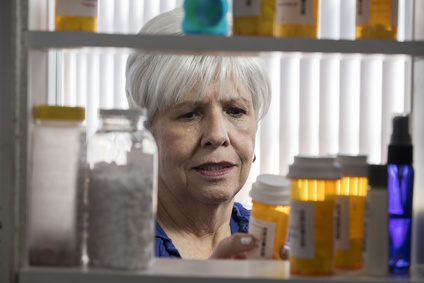Recently, the American Association for Justice (AAJ) released a report, From Accutane to Zonite: A History of Dangerous Drugs & Devices Marketed to Women, discussing how women have been disproportionately exposed to dangerous drugs and devices. This compelling report profiles some of the most harmful medical products that have been marketed to women and highlights the important role the civil justice system has played as a backstop to enhance safety standards when regulations and all other safeguards fail. For example, the report describes:
“Throughout modern history, women have suffered more than men from the effects of dangerous and defective drugs and medical devices. In the late 1800s, women were frequently given morphine for hysteria and methamphetamines for depression. In the early 20th century, women were encouraged to use Lysol as a douche and unofficial contraceptive aid. In the 1950s and 1960s, women were the victims of some of the worst disasters of modern health care with the thalidomide and DES scandals.
Even after consumer advocacy efforts drove changes in regulation, women continued to suffer disproportionately. From snake oil “hormone treatments” to deadly contraceptive devices, the last 150 years have been littered with dangerous drugs and devices that disproportionately affect women.
Many of these “treatments” spawned from the belief that women were physiologically inferior to men, and “enslaved and tortured” by the twin problems of menstruation and menopause.1
In many ways, women are fundamentally more at risk from the potential dangers posed by drugs and medical devices, but not because of such archaic beliefs about their inferiority. Women take more medications than men, respond differently to them, and are more likely to suffer adverse drug events. Yet it was not until 1993 that legislation was enacted requiring women to be included in human subject research.2 Even today, women are consistently underrepresented in studies, or outright excluded. Nor does the FDA require trials to compare dose efficacy between men and women, though women metabolize drugs differently.3
To make matters worse, the vast majority of medical devices are never actually approved by the FDA, rather they are “cleared” on the basis of the manufacturers’ own assertion that the device is similar to other devices already on the market. This frequently leads to a domino effect, where a defective device leads to generation after generation of further dangerous products. In addition, drug and device manufacturers have learned to hide behind regulations, arguing that they are immune from accountability for their dangerous products because FDA approval preempted any later attempts to hold them responsible. Many of the drugs and medical devices profiled here were approved by regulators and marketed on a massive basis, despite manufacturer knowledge of serious health risks. In almost every case, women were put at risk for years, while corporations squeezed every last drop of profit from their products.”
The report also includes a discussion of recent litigations involving products for women like Yaz, Essure and vaginal mesh.
Attorney Pamela Borgess has had the honor and privilege of fighting for thousands of women who have been seriously injured or who have even lost their lives to dangerous products, including medical drugs and devices such as these. Through the civil justice system, these brave women have publicly exposed wrongdoing, forced recalls and enhanced warnings, and saved lives.
Attorney Pamela Borgess is the founding Attorney of Borgess Law, LLC. For more information about dangerous and defective drugs and devices, you can reach Borgess Law at (567) 455-5955 or toll-free at (844) LAW-9144. You can also contact Borgess Law by submitting an online inquiry. Borgess Law never charges for initial consultations and welcome any questions you may have.
